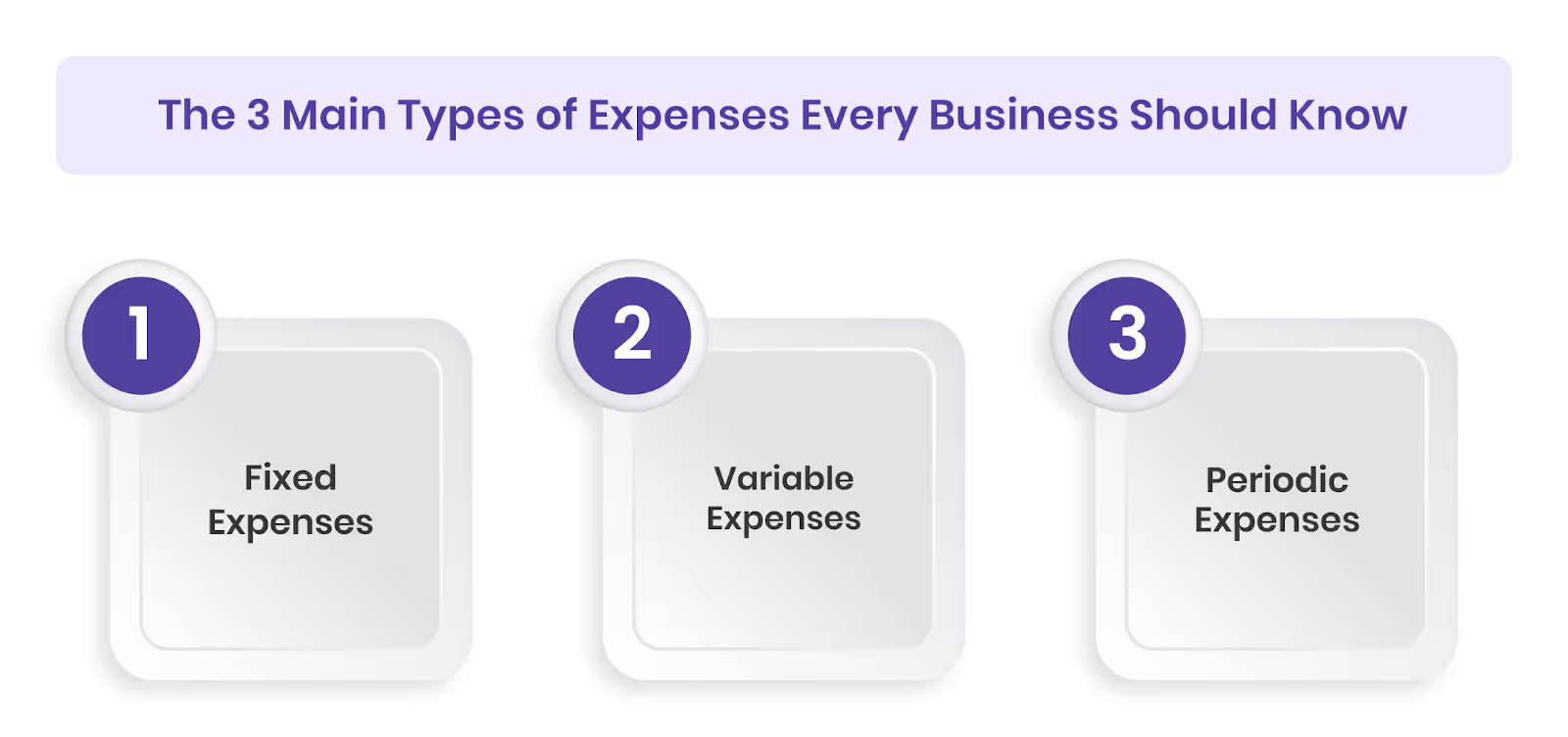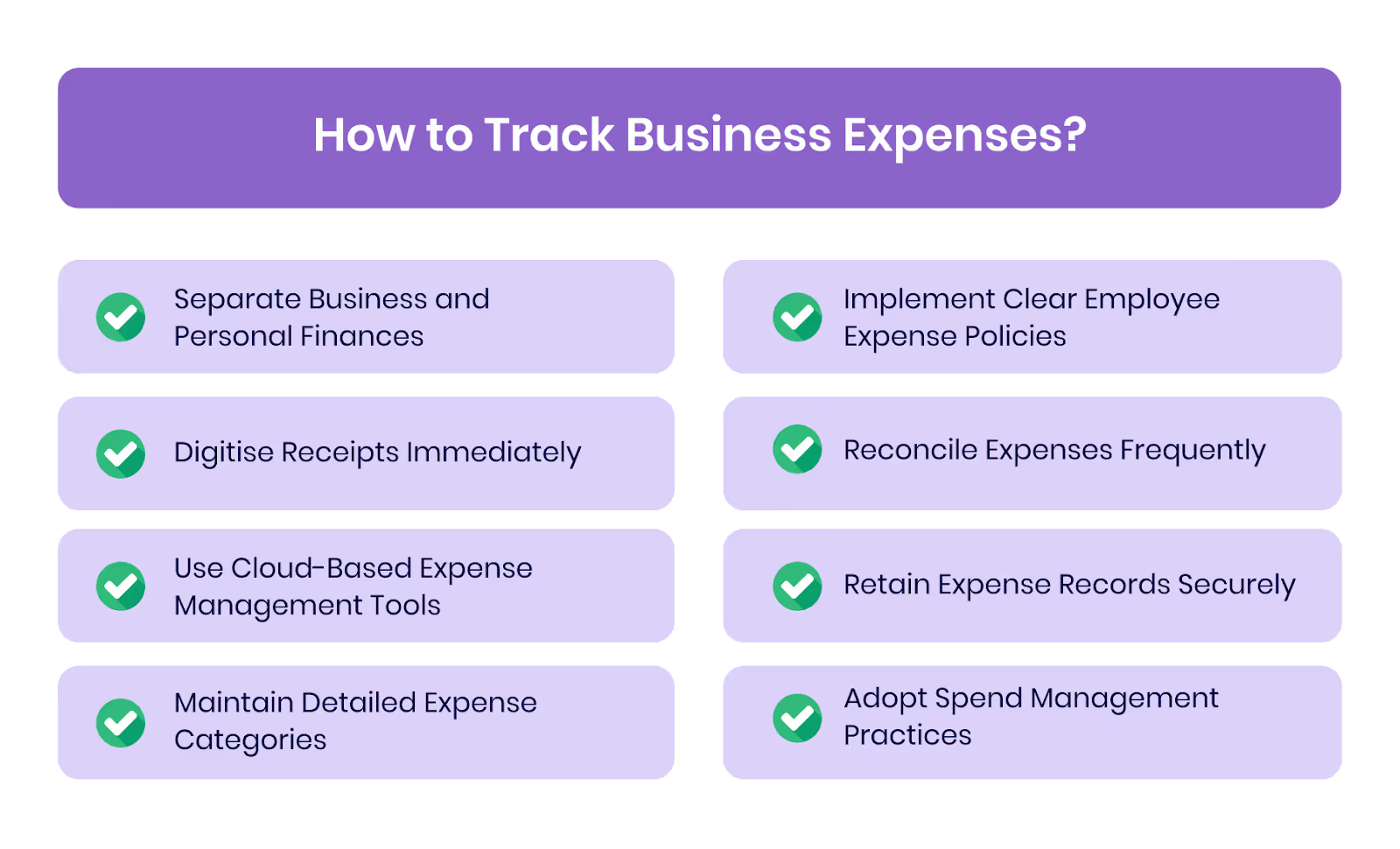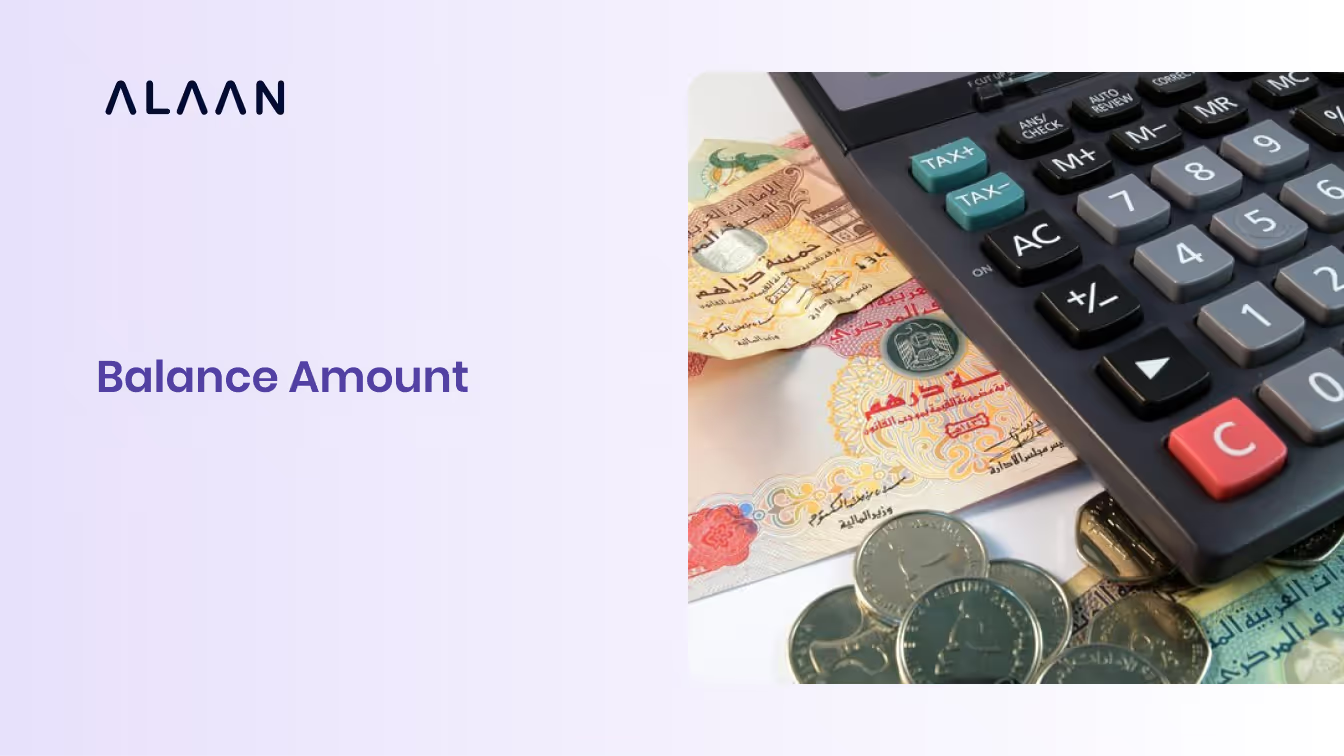Every business spends money to keep running, but not all expenses behave the same way. With rising costs, VAT compliance requirements, and stricter financial reporting standards in the UAE, finance leaders need more than just definitions. They need clarity on expense categories, how each type affects cash flow, and practical ways to manage them.
According to reports, business travel costs alone are expected to increase by 58% in 2025, showing how critical expense tracking and control have become for financial resilience.
This article explains the main types of expenses, provides practical examples, and shows how knowing your expenses can benefit your business.
Key Takeaways
- Expense Categories: Business costs are classified as operating or non-operating, shaping reporting and tax treatment.
- Types of Expenses: Fixed, variable, and periodic expenses influence budgeting, cash flow, and financial planning decisions.
- Practical Examples: Real-world examples, from rent to annual software licenses, illustrate how each expense type applies to business operations.
- Tracking Expenses: Using digital tools and clear categorisation reduces errors, ensures compliance, and provides real-time visibility into spending.
- Separation of Finances: Keeping personal and business expenses distinct avoids mistakes and simplifies accounting and tax reporting.
Understanding Business Expense Categories
Business expenses can be grouped into categories that reflect how they impact your operations and financial reporting. At the broadest level, expenses fall into two main types: operating and non-operating.
- Operating Expenses: Costs tied to daily business activity, such as rent, salaries, utilities, marketing, and R&D. They affect profitability and require consistent monitoring.
- Non-operating Expenses: Costs outside core operations, like loan interest, restructuring charges, or foreign exchange losses. They influence overall financial health and reporting, but don’t impact daily operations.
Separating these categories helps finance teams manage routine costs while keeping an eye on irregular or exceptional items.
Also Read: Expense management guide for UAE businesses
The 3 Main Types of Expenses

To manage your business finances effectively, it is important to understand the three core types of expenses: fixed, variable, and periodic. Each type behaves differently and affects your cash flow and budgeting in unique ways.
1. Fixed Expenses
These are regular costs that generally remain constant regardless of the level of business activity. Fixed expenses tend to be predictable and repeat on a consistent schedule, helping businesses plan their finances with stability.
2. Variable Expenses
These costs fluctuate directly with your business operations. As your sales or production increase or decrease, variable expenses change in proportion. They require careful monitoring since they impact profitability based on activity levels.
3. Periodic Expenses
These expenses occur irregularly but are often predictable. Unlike fixed expenses, periodic costs do not happen every month but recur on schedules such as quarterly, semi-annually, or annually. Effective financial planning requires anticipating these less frequent expenses.
Understanding these types empowers you to forecast expenses better, control your spending, and maintain steady cash flow throughout your business cycle.
Also Read: Differentiating Between Fixed, Variable, and Periodic Expenses
Practical Examples of Common Business Expenses
Here are practical examples of business expenses, grouped by the three core types, to help you understand how they apply in real business scenarios:
- Fixed Expenses Examples:
- Office rent or lease payments
- Employee salaries and wages
- Insurance premiums (property, liability, health)
- Lease payments for equipment
- Variable Expenses Examples:
- Utility bills such as electricity and water
- Raw materials and supplies for production
- Marketing and advertising costs
- Sales commissions for employees or agents
- Transportation and delivery expenses
- Periodic Expenses Examples:
- Annual software licensing fees
- Equipment maintenance and repairs
- Professional membership or certification fees
- Property tax payments
By categorizing expenses this way, you can better match spending with revenue and plan more accurate budgets.
Accounting for Business Expenses
How you account for expenses directly affects reporting accuracy, tax compliance, and cash flow visibility. Most companies use either:
- Accrual accounting, where expenses are logged when incurred, even if not yet paid.
- Cash accounting, where expenses are recorded only when payment is made.
For finance leaders, the key is consistency. Mixing methods distorts profit margins and makes audits harder. Whichever method you follow, ensure all expenses are properly documented, categorised, and retained in line with UAE VAT and corporate tax requirements.
How to Track Business Expenses?

Tracking business expenses effectively is crucial for maintaining financial control and ensuring compliance. Here are key best practices to follow:
- Separate Business and Personal Finances: Use dedicated business accounts and payment methods to keep expenses distinct and simplify tracking.
- Digitise Receipts Immediately: Capture receipts and invoices digitally as soon as you get them to maintain accurate records and prevent loss.
- Use Cloud-Based Expense Management Tools: Adopt software that integrates with your accounting system, automates expense categorisation, and reduces manual errors.
- Maintain Detailed Expense Categories: Categorise all transactions clearly (e.g., travel, utilities, office supplies) for better reporting and tax deductions.
- Implement Clear Employee Expense Policies: Set transparent rules for expense approvals, spending limits, and documentation to avoid overspending and fraud.
- Reconcile Expenses Frequently: Regularly compare expense records with bank statements to detect discrepancies early.
- Retain Expense Records Securely: Keep digital copies of all receipts and financial documents for at least five years in line with UAE regulations.
- Adopt Spend Management Practices: Move beyond tracking by controlling and optimising spending at a holistic level. Spend management centralises expense data, improves budgeting, enhances supplier negotiations, and boosts compliance.
Following these steps will help you gain visibility and control over your spending, reduce errors, and make compliant, data-driven decisions.
Also Read: Simple Steps to Track and Manage Business Expenses
Manage Expenses Better with Alaan
Alaan is the UAE’s leading AI-powered spend management platform that transforms how businesses control and optimise their spending. Designed specifically for modern companies, Alaan offers a comprehensive solution to simplify expense tracking, including:
- Real-Time Visibility & Control: Monitor every transaction instantly on a centralised dashboard. Alaan sends automatic alerts on spending activities so businesses stay on top of cash flow and avoid surprises.
- Smart Corporate Cards with Custom Controls: Issue unlimited prepaid Visa corporate cards with tailored spending limits, multi-currency support, and instant card freeze/unfreeze features. This empowers businesses to distribute funds securely while maintaining tight spend control.
- AI-Driven Automation & Data Precision: Alaan’s AI automatically extracts data from receipts, including VAT and vendor information, eliminating manual errors and speeding up expense reconciliation. This improves accuracy for audits and tax reporting.
- Custom Approval Workflows: Set up flexible approval flows at the team or individual level, ensuring all expenses comply with company policies before processing.
- Seamless Integration with Accounting Systems: Sync expense data effortlessly with popular accounting and ERP platforms, enabling faster bookkeeping, detailed reporting, and audit readiness without extra manual input.
- Dedicated Support & Compliance Assurance: Alaan stays up to date with UAE tax regulations and provides expert guidance, helping companies maintain compliance and maximise eligible tax claims.
Businesses using Alaan experience significant time savings, lower costs, and stronger financial governance. By automating and centralising expense management, Alaan empowers teams to focus on growth while reducing administrative overhead.
See how Alaan can revolutionise your expense management,
Conclusion
Managing business expenses well is essential for keeping your finances in order and avoiding surprises. When you track spending closely and have clear policies in place, you save time, reduce mistakes, and stay compliant with tax rules.
Alaan helps UAE businesses take control of their expenses with smart tools that make managing spend simple and transparent.
Take the stress out of expense management and focus on growing your business.
Try Alaan with a free demo and experience how easy and efficient expense tracking can be.
Frequently Asked Questions (FAQs)
1. What are the three types of expenses in business?
The three main types of expenses are fixed expenses, variable expenses, and periodic expenses. Fixed expenses remain constant, variable expenses fluctuate with business activity, and periodic expenses occur at regular intervals but less frequently.
2. What are examples of fixed expenses?
Common fixed expenses include rent, salaries, insurance premiums, and office lease payments. These costs generally remain stable over time regardless of business volume.
3. What are some common examples of business expenses?
Typical examples include employee wages, utility bills, marketing costs, office supplies, travel expenses, and equipment maintenance.
4. What details should be included when recording an expense?
Expense details typically include the date, amount, payment method, purpose or description, receipt or invoice, and expense category.
5. What is the difference between fixed, variable, and periodic expenses?
Fixed expenses do not change with sales volume, variable expenses vary directly with production or sales, and periodic expenses are recurring but paid less frequently, like annually or quarterly.
6. What are all the types of expenses in business?
All types include fixed, variable, periodic, operating, non-operating, capital, incidental, and accrual expenses.


.avif)







%201.avif)